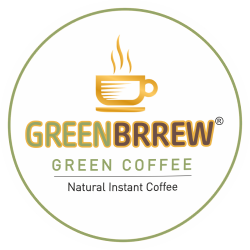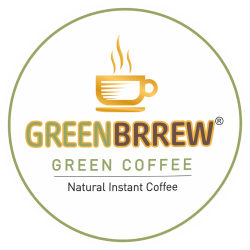Are you wondering how much caffeine in green tea vs coffee to make smarter choices for your daily brew? So whether you are a coffee fanatic looking for the morning jolt that brew can offer or a tea lover preferring more of a mellower lift, being aware of caffeine disparity can give you useful ways to customize your summer routine so that it works to maximize energy, focus, and health. We’re going to help you sort through the details of how we get this vaccine up your arm in an informative, fun way with reliable sources leading the way.
What is Caffeine, and Why Does it Matter?
Caffeine is an organic stimulant occurring in plants, including coffee beans and tea leaves. It promotes alertness by inhibiting sleep-inducing chemicals in the brain and increasing adrenaline. But too much can result in jitters, insomnia, or dependence. Understanding how much caffeine in green tea vs coffee is crucial for anyone trying to manage consumption—whether it’s the amount you need for productivity, workouts, or just kicking back and taking a relaxing sip of something delicious.
Caffeine Content in Coffee
Coffee is famed for its strong caffeine punch, and it’s a favorite of many. One 8-ounce (237 ml) cup of brewed coffee contains an average of 80-100 mg of caffeine. This does also depend on the coffee:
- Drip or Brewed Coffee: Typically 95 mg per 8 oz, according to health experts.
- Espresso: A single shot (1 oz) packs around 63 mg, but since drinks like lattes use multiple shots, the total can climb higher.
- Instant Coffee: Often lower, at 30-90 mg per cup.
Other factors, such as bean roast (darker roasts are slightly lower in caffeine) and brewing time, matter, but essentially coffee gives a stronger punch of instant energy.
Caffeine Levels in Green Tea
Green tea provides a more gentle option; the caffeine in green tea is present throughout the day and gives a noticeable pick-me-up effect without the crash that's sometimes linked with coffee. A cup of brewed green tea (6 ounces) usually contains between 30 and 50 milligrams of caffeine. Here's a closer look:
- Standard Brewed Green Tea: Approx. 29 mg per 8 oz, according to nutritional information.
- Matcha Green Tea: This powdered version is actually more concentrated, 40-70 mg per serving, as you’re consuming the entire leaf.
- Bagged vs. Loose Leaf: Loose leaf tea is often more flavorful with slightly higher caffeine, but the preparation counts.
Brands such as Greenbrrew are known to offer some exceptional high-grade quality green tea along with maintaining the caffeine content and maximizing the health benefits of the antioxidants.
Direct Comparison: How Much Caffeine in Green Tea vs Coffee
So when comparing how much caffeine is in green tea vs coffee, as far as sheer quantity is concerned, the latter has the upper hand. A regular 8 oz cup of coffee contains about three times as much caffeine as a serving of green tea—95 mg compared to 30 mg. But it's not just about numbers:
- By Weight: In reality, tea leaves have more caffeine (up to 4 percent) than coffee beans (0.9%-2.6%), but since less is used, the longer the brewing time or the larger the amount of beans, the more gets extracted by brewing coffee and not so in tea.
- Effects on the Body: Green tea: The caffeine content of green tea comes with L-theanine, an amino acid that encourages calm focus and helps eat away at jitters. Coffee’s hit is sharper, but you come down more quickly.
- Daily Intake: If you have more than one serving a day, it’s easy to surpass the American adult intake of 400 mg daily with coffee, but green tea can accommodate as many servings per day because it is much lower in caffeine.
For an equally advantageous option, water for green tea blends provided by Greenbrrew has just the appropriate caffeine level required to keep you energetic all day long.
Factors That Influence Caffeine Amounts
Caffeine isn't fixed—several variables can tweak the levels in your cup:
- Brewing Method: The steeper or the hotter the water, the more caffeine is extracted. If it’s green tea, you’ll want 175°F (80°C) to prevent bitterness; for coffee, go for 195-205°F (90-96°C).
- Serving Size: Larger mugs mean more caffeine—a 16 oz coffee could potentially double what you consume.
- Type and Quality: Robusta beans are more caffeinated than the Arabica beans, and similarly, shade-grown green tea leaves (similar to those found in premium brands like Greenbrrew) may boast higher levels.
- Add-Ins: Milk or sugar does not affect caffeine, but decaf varieties cut it by 97%.
Understanding these helps you customize your brew for the perfect pick-me-up.
Health Benefits and Considerations
Beyond caffeine, however, both beverages have their perks. Its key ingredients—coffee and green tea, respectively—are linked to lower risks of Parkinson’s disease and type 2 diabetes for one and stuffed with antioxidants for the other that can help the heart and metabolism. But large amounts of caffeine can lead to anxiety or interfere with sleep. If you’re sensitive, green tea’s lighter dose might be for you. Always talk to your doctor if you have conditions such as pregnancy (limit to 200 mg daily).
Conclusion
When considering how much caffeine in green tea vs coffee, with its 80-100 milligrams per cup potent blast of brain and body energy (and just the right adult kick to banish a potential midday nap), the 30-50 milligram payoff in green tea’s smooth-as-Sinatra head start provides an antioxidant-rich alternative. It’s up to you—choose coffee for intensity or green tea for the slow burn. Today, brands like Greenbrrew make it easy to make the switch by offering flavorful, health-conscious options on the opposite end of that spectrum. Whichever you select, savor it mindfully for maximum benefit!
FAQ's
Q1. How many cups of green tea are equal to a cup of coffee?
Ans. Caffeine in approximately 2–3°C of green tea is equivalent to caffeine in 1°C of coffee (which has 95 mg of caffeine; however, it is only about 30-50 mg per cup for green tea).
Q2. Is green tea a stimulant or depressant?
Ans. Stimulant — It has caffeine in it to help keep you alert (albeit not as much as coffee).
Q3. Is green tea very high in caffeine?
Ans. Not quite—it has a moderate amount of caffeine (~30–50 mg per cup), only about half as much as the usual 95 mg in coffee.



